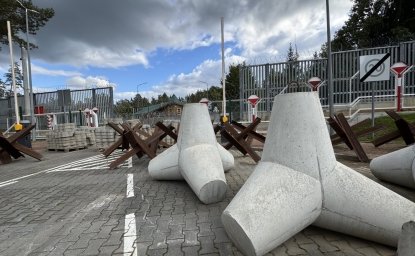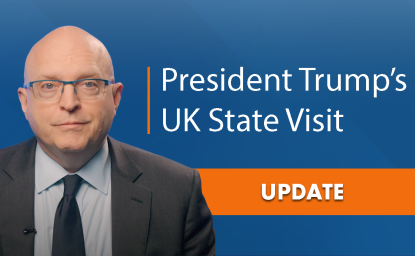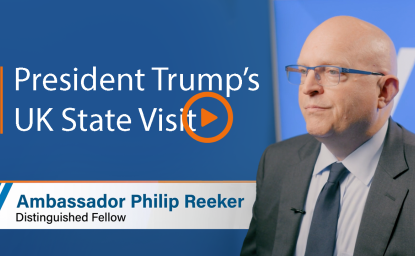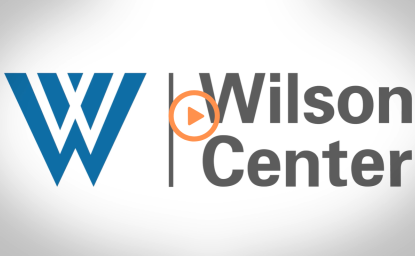Iran has been a problem for U.S. foreign policy for twenty-five years. Iran is now at a pivotal moment in its history – domestically, in the region, and in its relations with the United States – and will likely be our next major concern in terms of a trouble spot.
The Environment in Iran
There is much about Iran’s recent behavior that is troubling:
-- a determined nuclear program;
-- support for terrorism, particularly Hizbollah, Hamas and Palestinian Islamic Jihad, and insufficient pursuit of al Qaeda;
-- meddling in Iraq through Shiite groups in the south, and meddling in Afghanistan through some warlords in the west;
-- opposition to the Israeli-Palestinian peace process and official hatred of the United States and Israel;
-- an unelected clerical government that thwarts reform efforts and dominates the elected government;
-- and continued human rights violations.
Proliferation is of particular concern, as Iran’s nuclear program has made substantial progress. Iran appears to be going forward with the construction of several nuclear reactors; continues to receive outside help, particularly from Russia; has begun to mine and enrich uranium; and has violated IAEA regulations by building unacknowledged nuclear facilities. Indications are that Iran could possess an indigenous nuclear capability in 2004.
Iran claims that its nuclear program – started more than 25 years ago – is for civilian use, and that it is still in compliance with the NPT. But given Iran’s natural resources, nationalist tendencies, and fear of nuclear power in Pakistan, the U.S., and particularly Israel, it is difficult to believe that Iran would expend the amount of resources and political capital that it has for merely civilian purposes.
But there are also promising developments in Iran. Popular revolutionary fervor appears spent. Growing numbers of young people are calling for more democracy, openness, and better relations with the U.S. and the West. And Iran offered tacit cooperation for U.S.-led wars to oust the Taliban and Saddam Hussein.
Iran’s leaders are now faced with a choice: Iran can remain fundamentalist, anti-modern and divided; or it can join the community of nations and serve the aspirations of its people. The U.S. has never had a better chance to help move that process in the right direction.
U.S. Policy
The U.S. has struggled for years to define a clear policy towards Iran. Currently, our policy is one of containment: a ban on U.S. trade, sanctions on foreign investment, and attempts to restrict Iran’s access to dual-use technologies. There has been limited U.S.-Iranian dialogue on issues of common concern, such as Afghanistan, but these contacts have apparently ended.
President Bush has abandoned efforts to boost the Khatami government, spoken out in support of protestors demanding democratic reform, and said that an Iranian nuclear capability would be intolerable. But he has not articulated a comprehensive U.S. policy.
After many years of trying, our policy has failed to disrupt Iran’s nuclear development, or alter the Iranian government’s behavior with regard to terrorism, Israel and political reform.
Now is the time for a review of our approach. Iran will be a different country in five years – socially, economically and politically. The question is how we should act to encourage positive and constructive change that brings more pluralism to Iran, and stability to the region.
Recommendations
Moving beyond the current stalemate will be difficult. It is not possible to develop a calibrated road map for improved relations with parallel and reciprocal steps toward full engagement.
U.S. policy towards Iran should focus on non-proliferation and flexible, conditional engagement.
Nuclear Program: All of us agree that Iran’s development of nuclear weapons is intolerable, and all want to see the NPT enforced. To prevent Iran from developing nuclear weapons, the U.S. must use a firm and multi-faceted approach. We should:
-- make it clear to Tehran that its development of WMD is not acceptable;
-- increase our intelligence efforts to monitor Iran’s program more closely;
-- push for more intrusive IAEA inspections that include all suspected sites – not just those officially acknowledged;
-- work with Europe and Japan to heighten diplomatic and economic pressure;
-- continue to pressure Russia, China and other outside actors who sell nuclear or dual-use technology to Iran;
-- and consider interdicting dangerous dual-use materials if Iran does not alter its behavior.
If Iran does violate its treaty obligations, the U.S. should build its case against Iran in the U.N. Security Council, and establish that the possession of a nuclear weapon crosses a red line.
The U.S. must keep the option of using force on the table. But we must make it clear to Iran, and the world, that force would be used to disrupt or disable Iran’s nuclear program – not to change the regime in Tehran. If the Iranian regime feels its existence threatened by the U.S., it is more likely to seek a nuclear deterrent, and the U.S. is less likely to receive essential international support.
To succeed, this non-proliferation strategy must address Iran’s own security concerns. Iran is in a tough neighborhood, and is wary of both Israel and U.S. forces in neighboring Afghanistan and Iraq. Given these concerns and Iran’s desire to be a regional superpower, it is likely that any Iranian government would seek WMD.
Thus, a security dialogue for the whole region is necessary to make clear to Iran that its goals can be best achieved by foregoing nuclear weapons – the alternative is a costly arms buildup, further isolation, and the possibility of a preemptive strike.
Non-proliferation depends on keeping our partners – Russia, France, Germany, and others – in step, something we have not been able to do. Only by articulating a positive future for Iran and the region – one that includes an Israeli-Palestinian peace process, and stability in Iraq and Afghanistan – can we inspire international cooperation and confidence, and Iranian compliance.
Broader Engagement: Our non-proliferation strategy towards Iran must be accompanied by a broader reassessment of U.S. policy.
Military action against Iran is not a good idea at this point. The American people do not want another war; U.S. forces and resources are already strained in Iraq and Afghanistan; the diplomatic and political basis for such action has not been developed; and a U.S. strike would be met with significant international opposition, particularly in the Islamic world.
Other strategies for regime-change are not a good idea because the chance of success is so uncertain. We don’t know the depth of support for Iranian opposition groups or the students who are protesting in Iran. These groups have no clear leader, platform, or power.
I worry that direct U.S. backing for protesters may be counterproductive to their efforts, uniting and galvanizing the conservatives on a nationalist position, and enabling the regime to claim an “external threat” from America to pursue a crackdown. The last thing we want is a bloody and failed uprising that recalls the 1990’s Kurdish or Shiite uprisings in Iraq, strengthens the clerical regime and embarrasses the U.S.
Our current policy of containment is not working. We have not succeeded in isolating Iran or changing its behavior. Meanwhile, French, Italian, Norwegian and British companies have signed energy contracts with Iran. If we continue isolation and containment, we cannot know the timeline for reform in Iran. The outcome could be a nuclear-armed Iran hostile to the U.S. and tied to fundamentalist terrorism.
A flexible and conditional engagement offers us the best opportunity to influence Iran’s behavior, while pursuing our broader regional objectives.
Some steps can be taken in the short term; others will have to await a more favorable political climate. But we could take initial steps that would not risk our national security interests, with the expectation that Iran would, over time, react positively. This engagement would be incremental, based upon Iranian performance on proliferation, terror and reform, and would proceed step-by-step and cautiously on three tracks.
1) The first track is private, with increased ties to Iran among the NGO, academic and business communities, including a relaxation on some sanctions. Topics could range from the environment to trade and investment, and would serve to establish greater ties, trust and opportunities between our people.
2) The second track is public. Official government-to-government talks would begin at a low diplomatic level, so that we can move forward to the point where serious disagreements can be addressed and, eventually, diplomatic relations can be established. In an official dialogue, we can make it clear what Iranian behavior is unacceptable, while establishing that we do not want to determine the Iranian government, and are willing to offer inducements for reform – including the relaxation of some sanctions on trade and investment.
3) The third track is indirect, involving third-parties. We should identify common ground with Russia and Europe – on non-proliferation, regional security and economic opportunity – and take advantage of their close connections to Tehran. Russia must exert substantial pressure on the nuclear issue; Europe can pursue its economic interests in the broader context of Iran’s behavior.
We should make clear to Iran, and the world, what the optimal future is: economic opportunity, peaceful cooperation and regional stability.
This form of engagement would benefit U.S. interests – and the interests of reform within Iran – in several ways.
Within Iran, engagement:
-- provides American people, ideas and goods to bolster the case of reformers who seek better relations with the West;
-- and removes the U.S. as a scapegoat that enables the Iranian regime to stir up nationalist feelings;
For the U.S., engagement:
-- enhances our ability to effectively rebuild Afghanistan and Iraq by opening the possibility of cooperation – not competition – with Iran;
-- improves our ability to track down al Qaeda operatives and fighters;
-- increases the likelihood of Iranian recognition of Israel and a broader Middle East peace;
-- provides Americans with access to expanded markets and energy resources;
-- and establishes a framework for the U.S. to convince Tehran that their national security goals are best achieved by abandoning the pursuit of nuclear weapons.
Proliferation and belligerence by the clerical regime will draw only condemnation and isolation. But we should offer powerful carrots – economic inducements and diplomatic integration – as well as powerful sticks. There must be a positive alternative offered for those who work for reform.
Of course the U.S. must remain committed to its values, interests and allies. We should continue to speak out on behalf of democracy activists. We should establish that Iran’s possession of a nuclear weapon would represent crossing an intolerable red line. We should insist that Iran abandon support for terrorism and opposition to Israel’s existence.
But our approach towards Iran is not working, and harder-lines are fraught with risk and unpredictability –-for the U.S., internal reformers, and the region. If Iran takes reciprocal steps on proliferation, terrorism and reform, then we must be willing to integrate Iran into the international community – by opening the doors of commerce and dialogue, and dropping our opposition to Iranian membership in the WTO.
Iran is ripe for change and the U.S. has limited tools to influence Iranian behavior. Engaging is not appeasing – it is using all of the tools at our disposal to make sure that change leads Iran in the right direction. If we proceed on the foundation of our values, this form of engagement can work to influence Iranian behavior while promoting our own interests.



